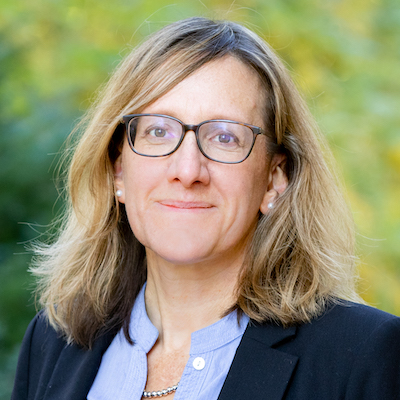The School of Education welcomed three new faculty members to campus at the start of the fall semester. We share Q&As completed by our newest faculty members to introduce them to our campus and School of Education communities.
Here, we get to know Suzanne Eckes, who joined the Department of Educational Leadership and Policy Analysis as a professor.
Hometown: Neenah, Wisconsin
Hobbies/other interests: Swimming, biking, jogging, and food.
 Educational/professional background: For the past 18 years, I have been on the faculty at Indiana University. Prior to joining the faculty, I was an attorney in Chicago. Before practicing law, I was a public high school French teacher in the Arkansas/Mississippi Delta region. I earned my undergraduate degree in French, international relations, and political science at UW–Madison. I also earned my JD and PhD at UW. My master’s in education and social policy is from Harvard University.
Educational/professional background: For the past 18 years, I have been on the faculty at Indiana University. Prior to joining the faculty, I was an attorney in Chicago. Before practicing law, I was a public high school French teacher in the Arkansas/Mississippi Delta region. I earned my undergraduate degree in French, international relations, and political science at UW–Madison. I also earned my JD and PhD at UW. My master’s in education and social policy is from Harvard University.
What is your field of research, and how did you get into it? I study education law. As a lawyer and public high school teacher, I witnessed how the law can influence school policy. I specifically became interested in how civil rights laws can create more equitable environments in U.S. public schools.
What attracted you to UW–Madison? I grew up in Wisconsin, and although I have lived in several other parts of the country, the opportunity to work in Madison has always been appealing. We loved living in Bloomington, Indiana, but this position in Madison was too good to pass up. The University of Wisconsin School of Education and its faculty are well respected around the world. I was attracted to the School’s focus on bridging research and practice.
Do you feel your work relates in any way to the Wisconsin Idea? The Wisconsin Idea promotes partnerships beyond the university’s boundaries. I am most satisfied when my research — which focuses on how civil rights laws can improve school policy — can influence students and educators throughout the state and beyond.
What’s something interesting about your area of expertise you can share that will make us sound smarter at parties? When educators, students, and families become knowledgeable about the ever-evolving court decisions and state/federal laws, we can create more equitable environments in schools. Of course, I don’t expect educators to become experts in the law, but it is possible for educators to become legally literate. For example, every year public school teachers violate well- established law w hen they require students to recite the Pledge of Allegiance in school, and coaches violate well- established law when leading their teams in prayer.
These mistakes could be avoided by establishing a basic legal literacy.